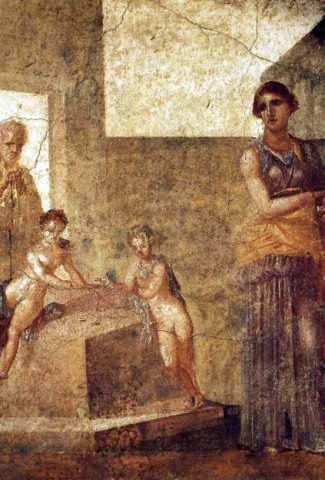
Tuesday, April 3, 2018
The legend of the wife and mother who avenges herself on an unfaithful or abusive husband by murdering their children is one that crosses oceans, boundaries and centuries. Even in antiquity, though Euripides’ Athenian treatment of the myth is the most famous, the figure of Medea featured prominently in the mythological tradition and ritual practice of Corinth as well. Likewise, the figure of La llorona, ‘the weeping women’, who murdered her own children in vengeance or in grief, is a mainstay of Mexican storytelling on both sides of the U.S./Mexico border.
While Euripides’ Medea has sometimes been viewed as a source-text, others have argued instead that La llorona has an indigenous origin in pre-Columbian, native American folklore. Until recently, however, no satisfying theoretical framework had been offered for comparing the two traditions without invoking (or rejecting) the language of “influence.” This paper proposes that theories of world literature by Franco Moretti and Pascale Casanova, and especially Alexander Beecroft’s conception of literary “ecologies,” provide a useful model for assimilating diverse literary traditions from around the world. After examining some of the fascinating points of contact between the legends of Medea and La llorona, the paper suggests ways of reading the Medea tradition (beginning with Euripides, but including also important Latin American receptions by Usigli, Novo, Ríos, Triana, Montero and others) alongside the tradition of La llorona (especially the staged versions by Huerta and Moraga).
A panoptic reading of this kind allows us not only to understand how both traditions function as cultural allegories, reflecting changing societal norms, but also to observe in the living language tradition of La llorona how mythological canons form, develop and enter national and global "ecologies" of world literature
